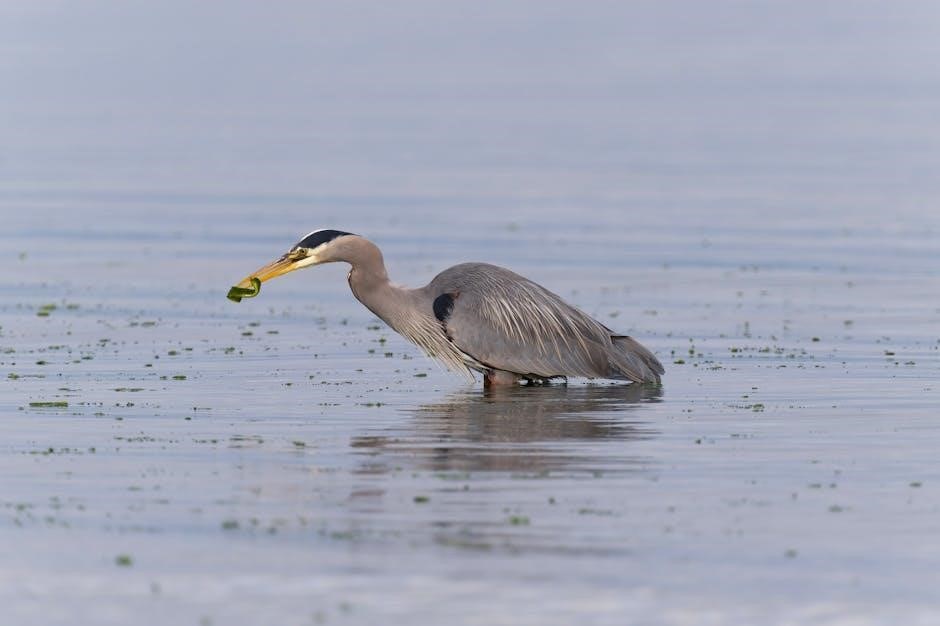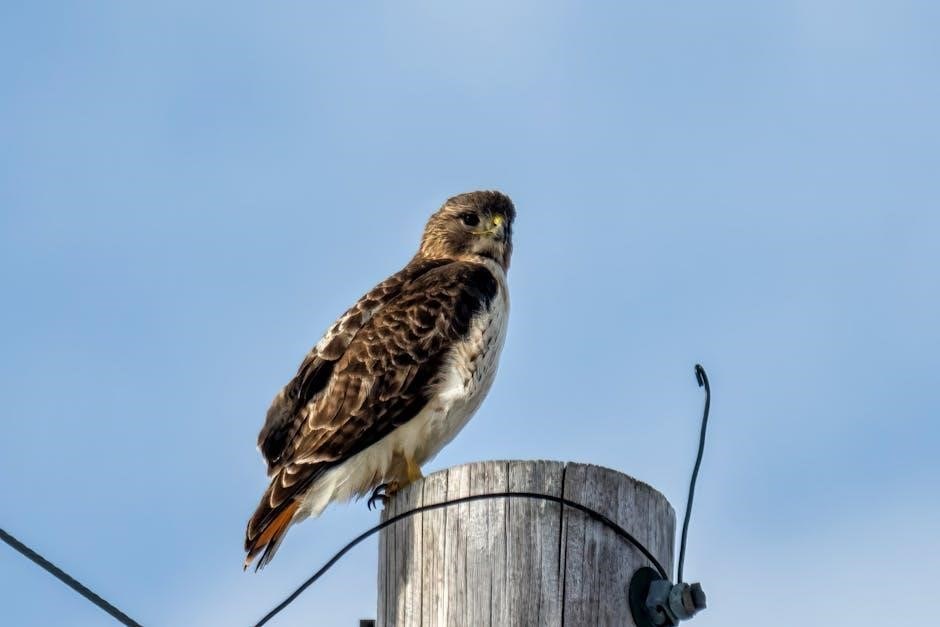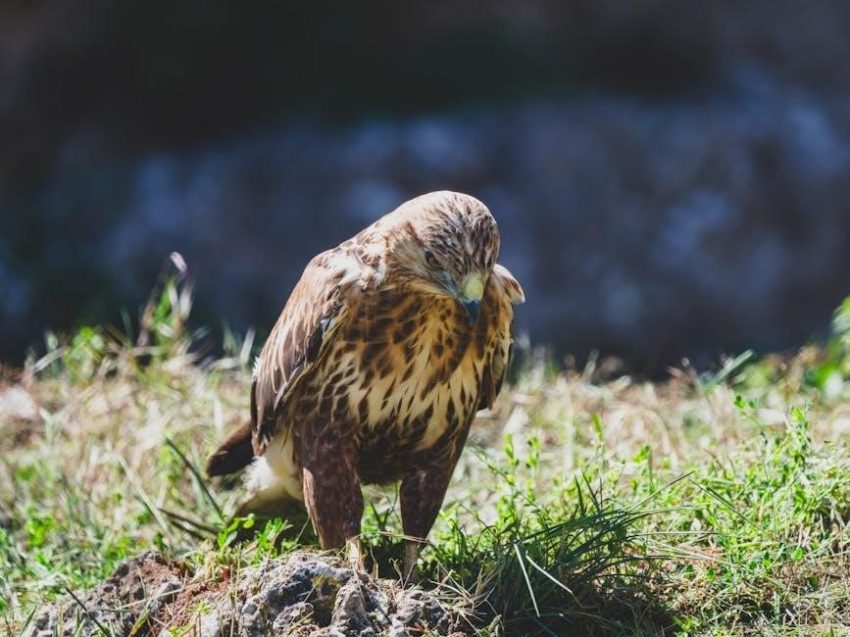Becoming a hunting guide requires passion, expertise, and physical endurance. It demands understanding regulations, obtaining certifications, and developing wildlife knowledge. Dedication and strong people skills are essential for success.
Overview of the Profession
A hunting guide leads clients on outdoor adventures, ensuring safe and successful hunts while sharing expertise on wildlife, terrain, and hunting techniques. The role demands strong outdoor skills, physical endurance, and the ability to interact with diverse personalities; Guides often work in remote, challenging environments, requiring adaptability and a deep understanding of nature. The profession combines passion for hunting with leadership, as guides must manage client expectations and deliver memorable experiences. It’s a unique career that blends adventure, conservation, and customer service, appealing to those who thrive in the wilderness and value ethical, sustainable hunting practices.
Why Become a Hunting Guide?
Becoming a hunting guide offers a unique opportunity to combine passion for the outdoors with sharing knowledge and expertise. It allows individuals to work in nature, teach hunting techniques, and create memorable experiences for clients. The role is ideal for those who enjoy adventure, physical challenges, and connecting with like-minded people. Additionally, it provides a chance to promote ethical hunting practices and contribute to wildlife conservation. For many, guiding is not just a job but a lifestyle that aligns with personal values and a deep love for the wilderness.

Step-by-Step Guide to Becoming a Hunting Guide
Transform your passion into a career by mastering essential skills, gaining experience, and adhering to regulations to excel as a professional hunting guide.
Research State and Local Regulations
Understanding state and local regulations is the first step to becoming a hunting guide. Each state has unique rules governing hunting practices, permits, and licensing requirements. Contact your state’s wildlife agency to learn about specific regulations, such as hunting seasons, bag limits, and land-use agreements. Familiarize yourself with licensing processes for both guides and clients. Additionally, research local ordinances, as they may vary by county or region. Compliance with all legal requirements ensures ethical practices and avoids legal issues, building trust with clients and wildlife authorities.
Obtain Necessary Certifications
Obtaining the right certifications is crucial for becoming a hunting guide. Many states require guides to complete a hunter safety course, which covers gun safety, regulations, and outdoor skills. First aid and CPR certifications are also essential for emergency situations. Consider specialized training, such as wildlife management or conservation courses, to enhance your expertise. Some certifications may take a full day or two to complete. These credentials not only meet legal requirements but also demonstrate your commitment to professionalism and safety, building trust with clients and outfitters. They often make the difference between amateur and professional status.
Gain Hunting and Outdoor Experience
Gaining extensive hunting and outdoor experience is vital for becoming a successful guide. Start by participating in personal hunting trips and learning from seasoned guides. Volunteer as an assistant or wrangler to gain hands-on experience. This exposure helps you understand the challenges of leading groups in diverse environments. Develop skills in tracking, navigation, and wildlife behavior by spending time in the field. Experience in handling horses or other outdoor gear is also beneficial for wilderness guiding. The more time you spend in the outdoors, the better equipped you’ll be to lead safe and successful hunting expeditions, ensuring client satisfaction and safety.
Build Physical and Mental Endurance
Building physical and mental endurance is crucial for a hunting guide, as the job demands long hours in rugged terrain. Engage in strength training, cardio, and outdoor activities to enhance stamina. Mental resilience is equally important, as guiding requires handling pressure and making quick decisions in challenging situations. Practice mindfulness and stress management techniques to stay calm under duress. Wilderness guiding often involves unpredictable environments, so developing both physical and mental fortitude ensures you can lead clients safely and effectively, even in extreme conditions. This preparation is essential for the demands of the profession and client expectations.
Learn About Wildlife Behavior and Habitat
Understanding wildlife behavior and habitat is vital for a hunting guide. Study animal patterns, such as feeding times, movement, and mating seasons. Learn to identify tracks, scat, and signs of activity. Familiarize yourself with different ecosystems and how species adapt to their environments. Knowledge of food sources, water availability, and shelter locations helps predict animal movements. This expertise allows you to locate game effectively and ensure a successful hunt. Continuous observation and experience in the field will refine your skills, making you a reliable and skilled guide for clients seeking memorable hunting experiences.
Develop People and Communication Skills
Being a hunting guide requires strong interpersonal skills to interact with clients effectively. Learn to be likable, patient, and approachable. Develop the ability to read people and adapt to their needs. Clear communication is key to ensuring safety, understanding, and a positive experience. Leaders must also be adept at managing group dynamics and resolving conflicts. Building rapport with clients fosters trust and satisfaction. These skills are as essential as hunting expertise, ensuring a successful and enjoyable experience for all involved in the hunt.
Network with Outfitters and Seasoned Guides
Networking with experienced outfitters and guides is crucial for building opportunities. Start by reaching out to established professionals, offering to assist or wrangle to gain experience. Attend trade shows, often held in January, to connect with industry leaders. Building relationships can lead to mentorship and job opportunities. Trustworthiness and loyalty are paramount, as many agreements in this field are based on handshake deals. A strong network not only provides guidance but also opens doors to client referrals and partnerships, helping you establish a reputation in the industry.
Consider Specialized Training
Specialized training can enhance your skills and credibility as a hunting guide. Enroll in courses that focus on wilderness first aid, survival techniques, and species-specific hunting strategies. Advanced certifications, such as those offered by the New Zealand Professional Hunting Guides Association (NZPHGA), demonstrate professionalism and expertise. These programs often cover animal behavior, habitat management, and ethical hunting practices. Additionally, training in outdoor leadership and client management can improve your ability to lead safe and successful hunting trips. Investing in specialized training not only boosts your knowledge but also ensures you deliver high-quality experiences for clients.

Skills and Requirements
Becoming a hunting guide demands physical stamina, wildlife knowledge, and strong communication skills. Guides must also possess first aid expertise and adaptability in challenging outdoor environments.
Physical Requirements
Becoming a hunting guide demands exceptional physical stamina, endurance, and strength. Guides must navigate challenging terrains, handle heavy gear, and withstand harsh weather conditions. Long hours, remote locations, and the ability to carry equipment over extended periods are common. Physical resilience is crucial, as guides often work in rugged environments with limited access to medical aid. Stamina to hike, climb, and track wildlife for hours is essential. Additionally, guides must be capable of lifting and carrying gear, ensuring both personal safety and client support in demanding outdoor settings.
Mental and Emotional Demands
Becoming a hunting guide requires strong mental and emotional resilience. Guides must manage stress, think critically, and make quick decisions in high-pressure situations. Adaptability is key, as weather, wildlife, and client behaviors can be unpredictable. Emotional stability is essential to handle long, physically demanding days and the pressure to deliver successful hunts. Guides must also possess patience, empathy, and the ability to manage client expectations, ensuring a positive experience even in challenging conditions. Mental toughness and focus are critical to navigate remote terrains, handle emergencies, and maintain composure under stress, ensuring both safety and satisfaction for clients.
First Aid and Emergency Response Skills
Mastering first aid and emergency response skills is crucial for hunting guides. Accidents, injuries, or sudden illnesses can occur in remote areas, requiring immediate action. Guides must be trained in wound treatment, splinting, and managing altitude sickness. Knowledge of CPR and the use of emergency equipment, such as AEDs, is essential. Guides should also be prepared to handle wildlife-related injuries and know how to evacuate clients safely. Proper training ensures quick, effective responses, minimizing risks and building client trust. Staying calm under pressure is vital to provide care and reassurance in critical situations.
Knowledge of Hunting Laws and Regulations
A thorough understanding of hunting laws and regulations is essential for guides. Every state has specific rules governing hunting seasons, permits, and bag limits. Guides must stay informed about licensing requirements, wildlife management areas, and ethical practices. Familiarity with local ordinances ensures compliance, avoiding legal issues. Knowledge of hunting leases and property rights is also critical. Staying updated on regulatory changes guarantees adherence to the law, protecting both the guide and clients. This expertise builds trust and maintains the integrity of the guiding profession, ensuring sustainable and responsible hunting practices for future generations. Legal compliance is non-negotiable in this role;

Networking and Opportunities
Networking is crucial for aspiring guides. Attend trade shows, workshops, and join professional associations to connect with outfitters and experienced guides. These opportunities build relationships and open doors to mentorship and job opportunities, helping you gain experience and establish a reputation in the industry.
Attending Trade Shows and Workshops
Attending trade shows and workshops is a vital step in becoming a hunting guide. These events provide opportunities to meet outfitters, learn about industry trends, and gain insights from experienced professionals. Workshops often cover topics like wildlife management, hunting techniques, and client relations. Networking at these events can lead to mentorship opportunities and job offers. Additionally, attending these gatherings helps build your reputation and stays updated on best practices, ensuring you stand out as a knowledgeable and skilled guide in the competitive hunting industry.
Volunteering or Assisting Experienced Guides
Volunteering or assisting experienced guides is a valuable way to gain hands-on experience and build industry connections. Many outfitters seek helpers for tasks like setting up camps or handling equipment. This role allows you to observe and learn from seasoned professionals, understanding the dynamics of guiding and client management. It also provides opportunities to network and demonstrate your dedication and skills. By assisting guides, you gain practical insights and credibility, which are essential for launching your career as a hunting guide.
Joining Professional Associations
Joining professional associations is crucial for aspiring hunting guides. These organizations provide valuable resources, training, and networking opportunities. Associations like the New Zealand Professional Hunting Guides Association (NZPHGA) offer certifications and mentorship, enhancing your credibility. Membership often includes access to workshops, legal advice, and industry updates. By joining, you align with ethical standards and gain exposure to experienced professionals. These connections can open doors to job opportunities and help you build a reputable career. Associating with such groups demonstrates your commitment to professionalism and excellence in the field.

Legal and Ethical Considerations
Ensuring compliance with hunting laws, obtaining necessary permits, and practicing ethical hunting are vital. These measures promote accountability and sustainable wildlife management, fostering trust and environmental stewardship.
Obtaining Licenses and Permits
Obtaining the proper licenses and permits is a critical step in becoming a hunting guide. Each state has specific requirements, so contacting the local wildlife agency is essential. Guides must secure a commercial guiding permit, which often requires proof of certifications and experience. Additionally, private land leases or agreements may be needed for access to hunting areas. Ensuring all legal documents are up-to-date is vital to avoid fines or legal issues. Renewals and updates should be tracked annually to maintain compliance. This step ensures ethical and lawful operation, protecting both the guide and their clients.
Understanding Hunting Leases
Understanding hunting leases is crucial for guides, as they often hunt on private land. A lease grants legal access to the property for hunting purposes. Guides must negotiate terms with landowners, ensuring clear agreements on usage rights, duration, and fees. Handshake agreements are common but risky; written contracts are recommended to avoid disputes. Leases may restrict hunting methods or species, so compliance is essential. Guides must also balance the landowner’s interests with client needs, ensuring sustainable use of the land. Proper documentation and communication are key to maintaining access and building long-term partnerships with landowners.
Importance of Ethical Hunting Practices
Ethical hunting practices are vital for maintaining trust and integrity in the guiding profession. Guides must ensure hunts are conducted legally and humanely, respecting wildlife and the environment. Trustworthiness and loyalty to clients are paramount, as guides often handle sensitive situations. Adhering to game laws and promoting fair chase principles fosters a positive reputation. Ethical practices also protect the future of hunting by preserving habitats and ensuring sustainable wildlife populations. Upholding these standards not only enhances a guide’s credibility but also contributes to the long-term conservation of natural resources for future generations.

Challenges and Opportunities
Balancing work and financial stability, adapting to changing environments, and building a strong reputation are key challenges. Opportunities arise through personal growth, delivering memorable experiences, and industry networking.
Balancing Work and Financial Stability
Guiding is often seasonal, making financial stability challenging. Many guides supplement income with off-season work, such as wranglers or outfitters. Managing contracts and client expectations while ensuring consistent revenue streams is crucial. Guides must budget carefully, as income may vary yearly due to factors like weather and game availability. Building a loyal client base and diversifying services, like offering fishing trips or outdoor adventures, can help stabilize finances. Networking and reputation play significant roles in securing steady work and maintaining a profitable guiding business.
Adapting to Changing Environments
Hunting guides must adapt to unpredictable conditions, such as weather changes, shifting wildlife patterns, and evolving regulations. Flexibility is key, as guides often face unexpected challenges like early snowstorms or habitat changes. Staying informed about environmental trends and being prepared for varying scenarios ensures success. Building a deep understanding of wildlife behavior helps guides adjust strategies to match changing conditions. Continuous learning and networking with experienced guides also provide valuable insights for adapting effectively. This ability to evolve is crucial for maintaining safety and delivering quality experiences for clients in dynamic outdoor environments.
Building a Reputation in the Industry
Building a strong reputation as a hunting guide requires trust, reliability, and consistent results. Delivering exceptional experiences fosters client loyalty and positive word-of-mouth. Strong communication and interpersonal skills help establish credibility. Guides must maintain professionalism, adhere to ethical practices, and prioritize client safety. Networking with outfitters and seasoned guides can enhance your reputation. Continuous learning and adapting to industry trends demonstrate commitment and expertise. Over time, a reputation for reliability and excellence attracts more clients and solidifies your standing in the industry. A strong reputation is key to long-term success as a hunting guide.
Becoming a hunting guide demands dedication, perseverance, and a deep passion for the outdoors. Continuous learning and adaptability ensure long-term success in this rewarding profession.
Final Tips for Success
Succeeding as a hunting guide requires staying adaptable, building a strong reputation, and continuously improving skills. Network relentlessly, seek mentorship, and prioritize client satisfaction. Stay updated on regulations and trends to remain competitive. Cultivate resilience, as the profession demands handling unpredictable environments and challenges. Invest in quality equipment and maintain a deep respect for nature and wildlife. Building trust with clients and outfitters is paramount for long-term success. Lastly, embrace lifelong learning to refine your expertise and stay ahead in this rewarding yet demanding field.
Continuous Learning and Growth
Continuous learning is vital for long-term success as a hunting guide. Stay updated on evolving regulations, wildlife management practices, and outdoor skills. Attend workshops, seminars, and webinars to refine your knowledge. Seek mentorship from seasoned guides to gain insights and strategies. Regularly assess and improve your abilities, whether it’s tracking, navigation, or client communication. Adapt to changing environmental conditions and hunting technologies. Embrace feedback from clients and peers to enhance your performance. By committing to lifelong learning, you ensure professional growth and maintain a competitive edge in the ever-evolving world of hunting guiding.
